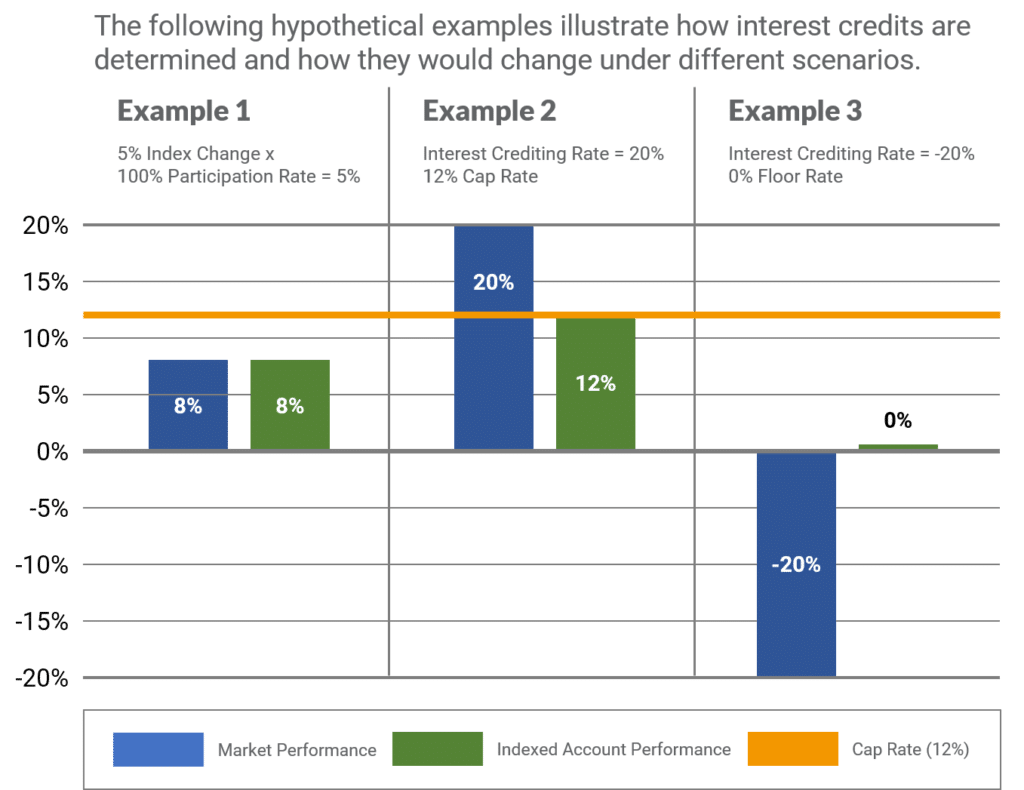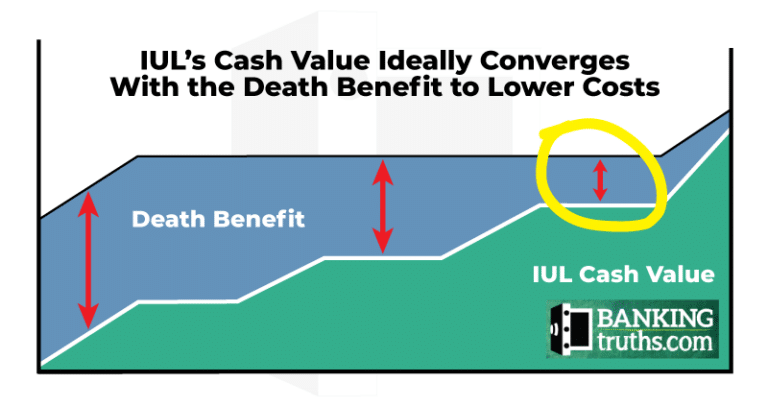All Categories
Featured
Table of Contents
1), typically in an effort to beat their group standards. This is a straw man argument, and one IUL folks enjoy to make. Do they compare the IUL to something like the Vanguard Total Amount Stock Exchange Fund Admiral Show no load, an expenditure ratio (EMERGENCY ROOM) of 5 basis points, a turnover proportion of 4.3%, and an extraordinary tax-efficient record of distributions? No, they contrast it to some awful actively handled fund with an 8% load, a 2% ER, an 80% turnover ratio, and an awful document of short-term funding gain circulations.
Mutual funds often make yearly taxable circulations to fund proprietors, even when the value of their fund has actually decreased in worth. Mutual funds not only call for revenue reporting (and the resulting yearly tax) when the shared fund is rising in value, however can additionally impose revenue tax obligations in a year when the fund has decreased in worth.
That's not just how shared funds work. You can tax-manage the fund, harvesting losses and gains in order to lessen taxable circulations to the financiers, but that isn't in some way going to transform the reported return of the fund. Only Bernie Madoff types can do that. IULs stay clear of myriad tax obligation traps. The ownership of shared funds might require the common fund owner to pay estimated taxes.

IULs are easy to position so that, at the proprietor's death, the beneficiary is exempt to either revenue or estate tax obligations. The very same tax reduction methods do not function virtually as well with common funds. There are countless, usually pricey, tax traps connected with the moment trading of shared fund shares, traps that do not relate to indexed life insurance policy.
Possibilities aren't extremely high that you're going to undergo the AMT because of your common fund circulations if you aren't without them. The remainder of this one is half-truths at ideal. While it is real that there is no revenue tax obligation due to your heirs when they inherit the profits of your IUL policy, it is also true that there is no earnings tax due to your heirs when they inherit a common fund in a taxed account from you.
Nationwide Indexed Universal Life
The federal inheritance tax exemption restriction is over $10 Million for a couple, and growing annually with rising cost of living. It's a non-issue for the huge bulk of doctors, much less the rest of America. There are better ways to stay clear of inheritance tax issues than getting investments with reduced returns. Mutual funds may trigger revenue tax of Social Safety benefits.

The development within the IUL is tax-deferred and may be taken as tax complimentary income via lendings. The policy proprietor (vs. the mutual fund supervisor) is in control of his or her reportable revenue, therefore allowing them to decrease or even remove the tax of their Social Protection advantages. This one is wonderful.
Right here's one more minimal problem. It's real if you buy a shared fund for state $10 per share right before the distribution day, and it distributes a $0.50 distribution, you are then going to owe tax obligations (probably 7-10 cents per share) although that you haven't yet had any kind of gains.
In the end, it's actually about the after-tax return, not exactly how much you pay in tax obligations. You're also possibly going to have more cash after paying those taxes. The record-keeping requirements for owning shared funds are dramatically more intricate.
With an IUL, one's records are kept by the insurer, copies of annual statements are sent by mail to the owner, and distributions (if any) are amounted to and reported at year end. This is likewise sort of silly. Certainly you should keep your tax obligation records in instance of an audit.
Universal Life Insurance Good Or Bad
All you have to do is push the paper right into your tax obligation folder when it appears in the mail. Hardly a reason to buy life insurance coverage. It's like this man has never purchased a taxed account or something. Common funds are commonly part of a decedent's probated estate.
In addition, they are subject to the delays and expenses of probate. The proceeds of the IUL plan, on the various other hand, is always a non-probate distribution that passes beyond probate straight to one's named beneficiaries, and is consequently not subject to one's posthumous creditors, unwanted public disclosure, or comparable hold-ups and costs.
Medicaid incompetency and life time income. An IUL can give their owners with a stream of earnings for their entire lifetime, no matter of exactly how long they live.
This is helpful when organizing one's events, and converting properties to revenue prior to a nursing home arrest. Mutual funds can not be converted in a comparable way, and are nearly constantly taken into consideration countable Medicaid assets. This is an additional silly one advocating that bad individuals (you recognize, the ones who need Medicaid, a federal government program for the poor, to pay for their retirement home) ought to use IUL rather of shared funds.
Buy Universal Life Insurance
And life insurance looks dreadful when compared rather versus a retirement account. Second, people that have money to get IUL over and beyond their retirement accounts are going to have to be dreadful at handling cash in order to ever receive Medicaid to pay for their retirement home costs.
Chronic and terminal disease biker. All plans will certainly enable an owner's very easy access to money from their plan, frequently forgoing any type of abandonment penalties when such individuals endure a significant disease, need at-home care, or become constrained to an assisted living home. Common funds do not offer a similar waiver when contingent deferred sales costs still put on a shared fund account whose proprietor requires to market some shares to money the prices of such a stay.
Compare Universal Life Insurance Rates
Yet you obtain to pay more for that benefit (motorcyclist) with an insurance coverage. What a terrific bargain! Indexed universal life insurance policy supplies death advantages to the beneficiaries of the IUL proprietors, and neither the owner neither the beneficiary can ever before shed money due to a down market. Mutual funds provide no such assurances or survivor benefit of any type of kind.
I certainly don't require one after I reach economic independence. Do I desire one? On standard, a purchaser of life insurance policy pays for the true expense of the life insurance policy advantage, plus the prices of the policy, plus the profits of the insurance business.
Equity Indexed Universal
I'm not completely certain why Mr. Morais included the entire "you can not lose cash" once more below as it was covered rather well in # 1. He simply intended to duplicate the best selling point for these points I expect. Once more, you do not shed small bucks, however you can shed actual dollars, in addition to face severe possibility cost due to reduced returns.

An indexed global life insurance policy proprietor may trade their policy for an entirely different plan without activating earnings tax obligations. A common fund proprietor can not move funds from one shared fund business to an additional without selling his shares at the previous (thus causing a taxable occasion), and repurchasing new shares at the last, usually based on sales costs at both.
While it is true that you can trade one insurance coverage for another, the reason that individuals do this is that the initial one is such a terrible plan that also after buying a new one and undergoing the very early, negative return years, you'll still appear ahead. If they were marketed the ideal policy the very first time, they shouldn't have any need to ever trade it and go with the early, adverse return years again.
Latest Posts
Financial Foundation Index Universal Life
Best Universal Life
Iul Vs Roth Ira